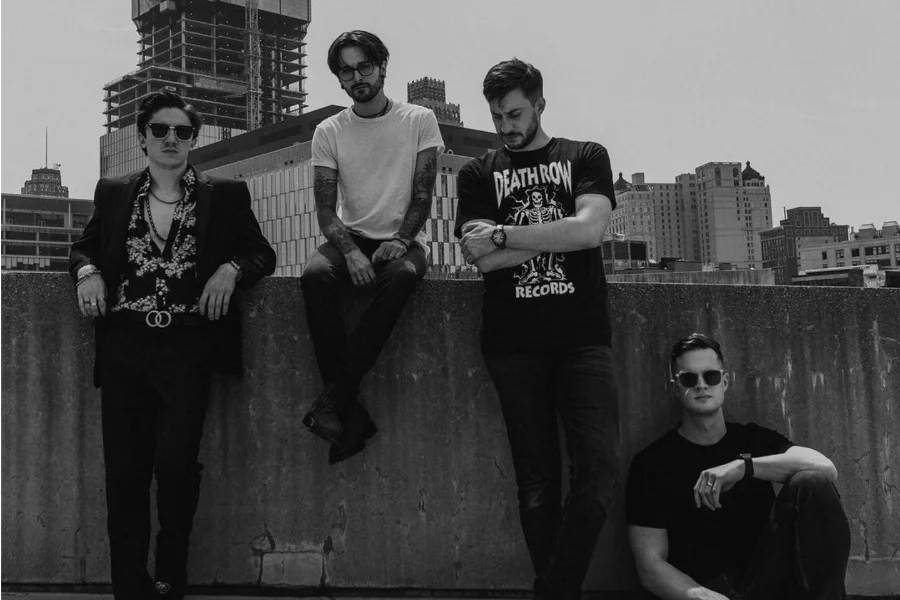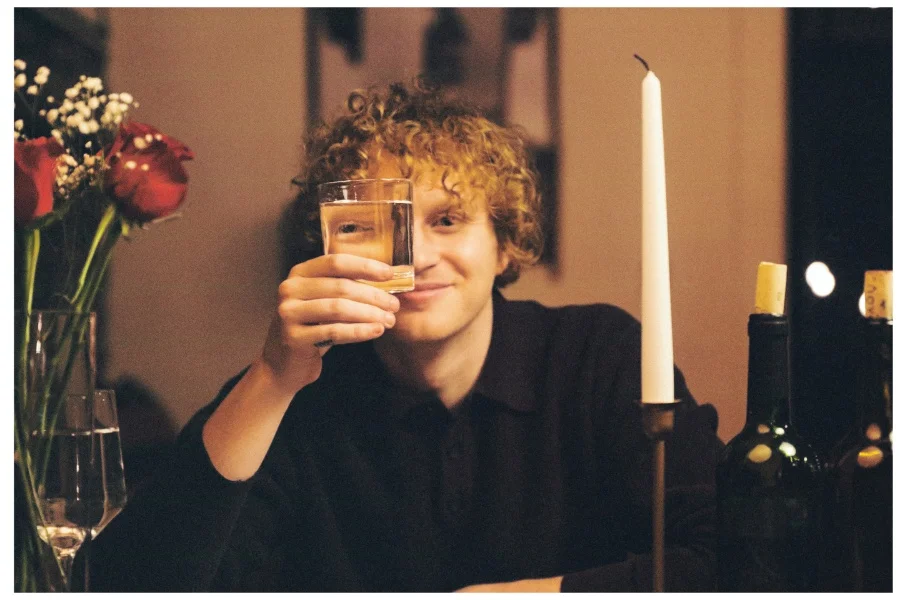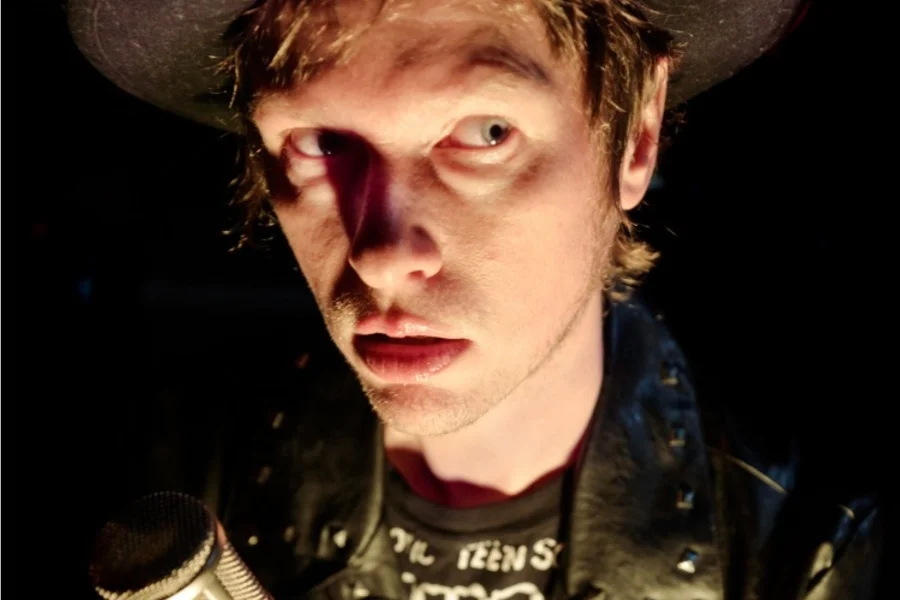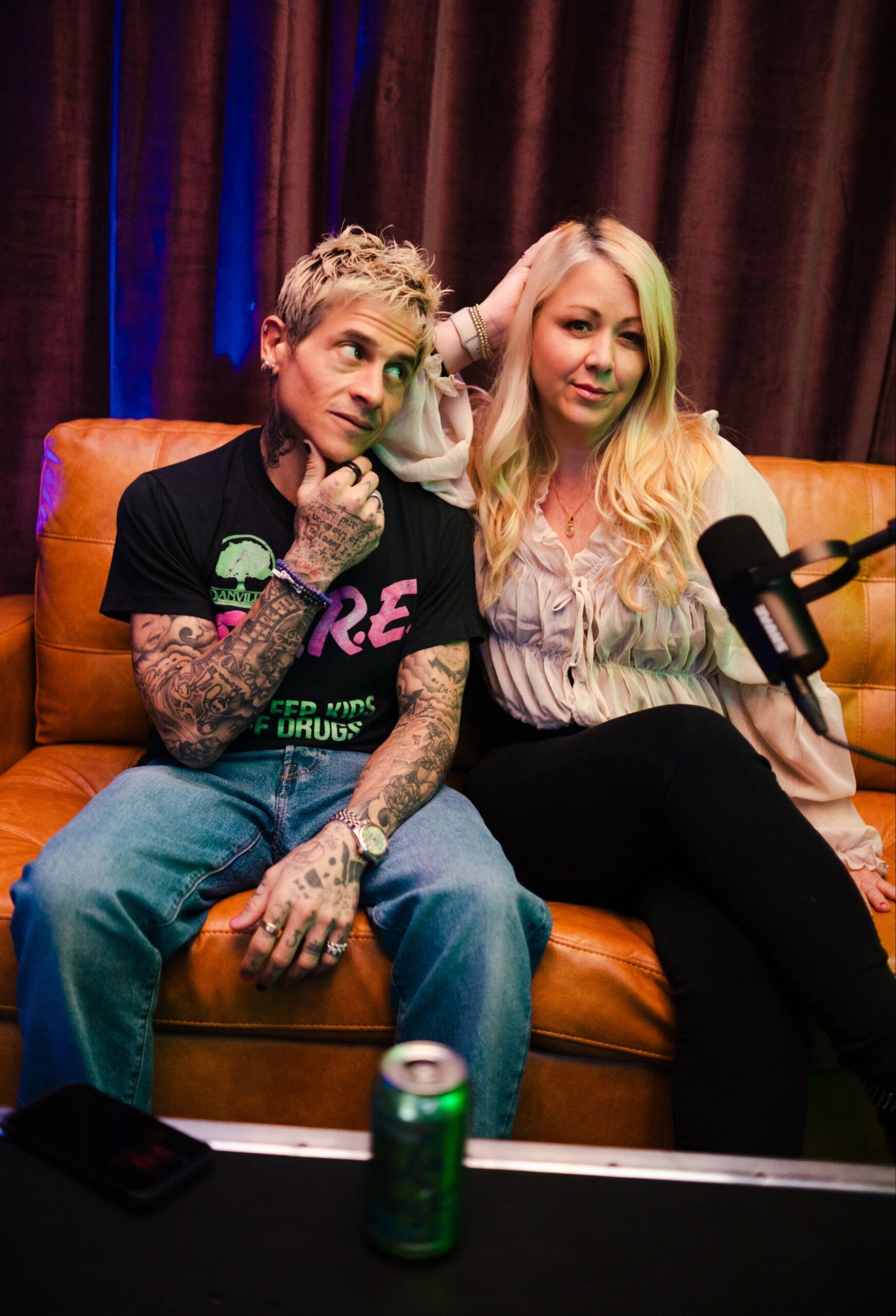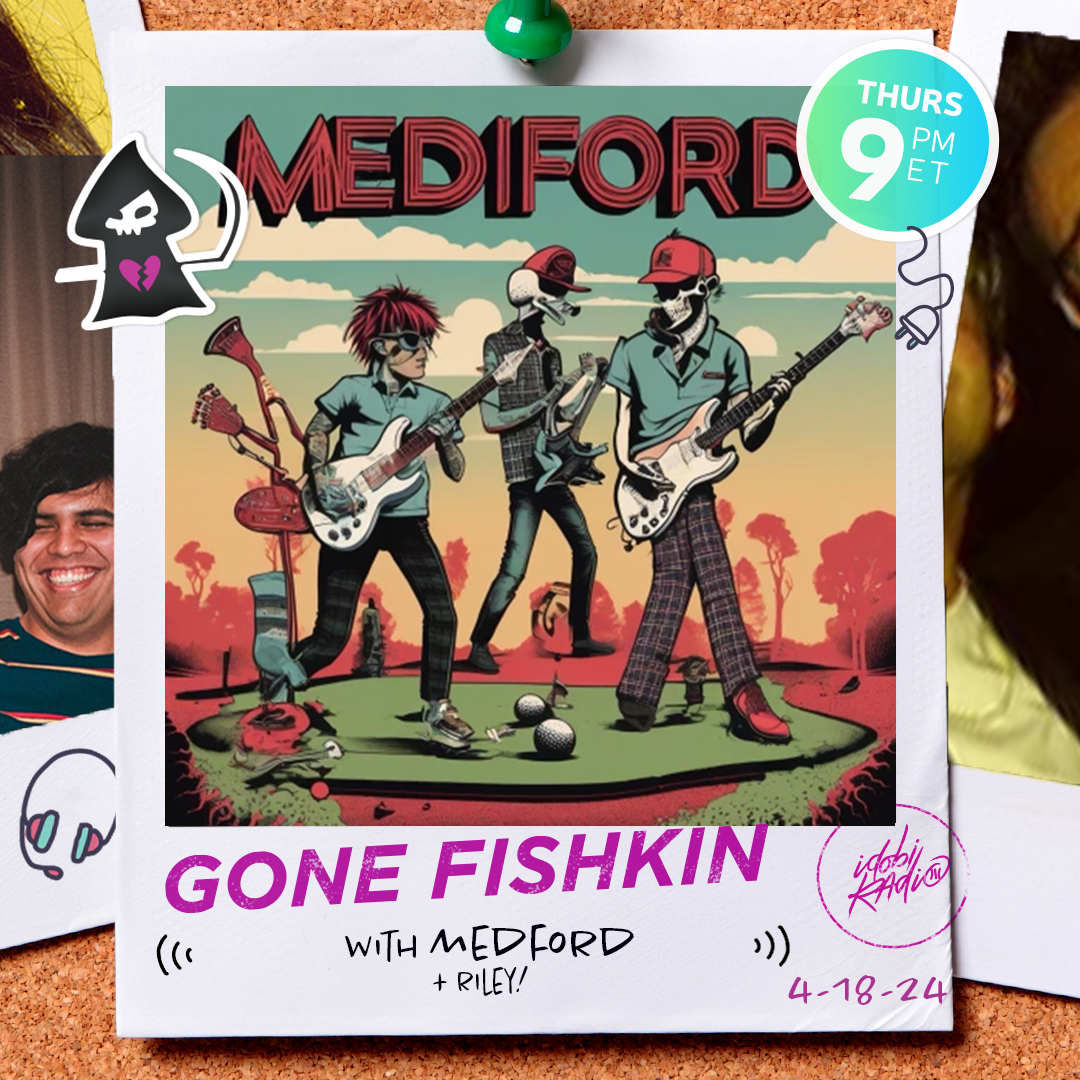Hoboken, N.J. – The brooding kid hailed as rock’s next musical genius slouches next to the bar at a tiny, smoky club. No one notices.
Not even this crowd of indie music fans recognizes Conor Oberst, the 24-year-old sensation behind Bright Eyes who’s been pegged as this generation’s Bob Dylan, putting words and melody behind those tormented emotions the rest of us struggle to describe.
He pops up on stage to join his friends, Yo La Tengo, for their encore. Then he slides back into the crowd, just another skinny guy in jeans and a black hoodie. But the days are dwindling when Oberst can go undetected – Bright Eyes has just released two albums and embarked on a world tour.
“Maybe I’ll start wearing disguises,” Oberst tells me later, considering how to handle his disappearing anonymity.
He already has a sense of it. His small but loyal following includes the kind of fans who show up, in tears, at his parents’ house in Omaha, Nebraska. Throngs of kids cluster outside his venues hours before showtime, desperate for a glimpse of the guy behind those arrangements that dance from light to dark, love to anger, whisper to shout.
Oberst, who is soft-spoken and talks like he sings – halting and deliberate – says their intensity is flattering, if a bit overwhelming. A powerful reaction, he says, is better than ambivalence.
“I’m glad that people feel strongly about the music and I think it’s nice that it’s not just something people can just take or leave,” he told The Associated Press by phone from Omaha, where he was spending a few weeks rehearsing for his tour. “Most people either embrace it and make it part of their life or they just hate it, but they take the time to tell people that they hate it.”
It’s easy to forget that Oberst is just 24 – recording music since the age of 13, his songs describe a weary lifetime of heartache and drunken travels. When he was 14 he founded Commander Venus, a kind of Pixies-meet-Pavement group that was one of the first on the Saddle Creek Records label, started by Oberst and his brother.
The label now handles several bands, including The Faint, Cursive and Oberst’s side projects like Desaparecidos, a higher-energy rock band. Concerned about monopolizing Saddle Creek with his ventures, Oberst recently founded another New York City-based label, Team Love, to put out new music that he likes.
No, he never has any down time.
And he certainly never gets a break from writing songs, because the music just kind of takes over his mind. All the time. Sometimes he’ll just space out in the middle of a conversation.
“Usually the vocal melody comes first – I kind of carry it around in my head with me and sort of slowly write the lyrics in my head,” he says. “Later on I’ll sit down with a piece of paper and really, you know, figure it out, but I guess the initial song just kinda happens. I don’t have much control over it.”
The process hasn’t changed since he was just a junior high school kid in his bedroom, writing about “the suffocated Midwest” and lines like “I need to just be near you and fill these empty eyes, but you start turning as resistance pulls you from my cold and boring life.”
Songwriting is how Oberst makes sense of everything.
“It’s always been something that I needed to do for myself to kind of maybe clarify my own thoughts or my own feelings and be able to understand them better,” he says. “That’s what really motivates me to write – I think I just feel pretty confused a lot of the time, and I think that writing is a way to at least for a moment have some clarity.”
Oberst has so much music playing in his head that he created two full length albums this time around, both of which were released Jan. 25. Recorded back-to-back, the albums show different sides of Bright Eyes: “I’m Wide Awake, It’s Morning,” is a stripped-down folk collection, with guest vocals from Emmylou Harris and Jim James, of My Morning Jacket. “Digital Ash in a Digital Urn,” is more produced, with a revolving door of bandmates and guest musicians, including guitarist Nick Zinner of Yeah Yeah Yeahs.
Lyrically, both albums deliver quintessential Bright Eyes lines like “I know you have a heavy heart, I can feel it when we kiss, so many men stronger than me have thrown their backs out trying to lift, but me I’m not a gamble, you can count on me to split.”
To critics and fans, he’s the next Bob Dylan – a description that doesn’t quite fit, Oberst says.
Dylan was the first to essentially sing poetry, Oberst says, “you know, more complex prose than ‘she loves me, yeah yeah.'”
“Once he did that, a lot of people followed suit, and therefore he was able to kind of redefine the way people thought of words and music… so when they keep hoping for someone to come and do that again, I always find it strange because that can’t really happen again.”
No, but he’s redefining something.
James, of My Morning Jacket, has toured with Bright Eyes and known Oberst for several years. “He has taught me a lot about the value of implanting vivid mental images deep inside the central cerebellum and nervous system. He has a way with words, you could say,” James said via e-mail.
To friends, Oberst is known for being fiercely supportive and honest, fixing those giant inky black eyes on you and greeting even strangers with a warm squeeze of the shoulder.
He also has a sense of social responsibility, which last fall translated into joining Bruce Springsteen, John Fogerty and R.E.M. on the Vote for Change tour, a series of concerts in battleground states aimed at ousting President Bush. Playing with those musical giants in front of the largest crowds of his career made for some surreal experiences, he says.
That exposure might have had a role in projecting his two singles to the top of the charts about a month later, a feat not seen since Puff Daddy did it in 1997.
But even before all that notoriety, Bright Eyes sold out several tours and released four full-length albums (the last sold 193,000 copies).
Oberst could easily leave Saddle Creek, sign with a major label and become an overnight rock star, but he has been unwilling to abandon his hometown crew and, as he sees it, surrender control over his music.
“When someone invests an unbelievable amount of money in you, no matter how they present it to you, they’re going to want their money back and that’s going to affect how they treat you and how they market what you do,” he says.
And for Oberst, making music has never been about money or fame.
He sings: “I feel more like a stranger each time I come home, so I’m making a deal with the devils of fame, saying ‘let me walk away.'”




















